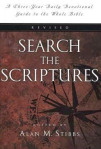Study 0 From The Book of Mark is: The Introduction of the book of
Mark
It is generally held that this
Gospel was written by John Mark, the nephew of Barnabas, and is the earliest of
the four Gospels. According to tradition it is based upon the teaching of the
apostle Peter, whose interpreter Mark became (cf. 1 Pet. 5:13), and was written
in Rome for the church there. It begins
with a short preliminary statement of John the Baptist’s ministry, and of the baptism
and temptation of Jesus, and then passes on to His public ministry in
Galilee. In common with the other
Gospel, it devotes a comparatively large space to Jesus’s sufferings, death and
resurrection.
The story centres in the confession of Peter, ‘Thou
art the Christ’ (8:27-29). Up to that
time it tells of our Lord’s activity in preaching and healing; but after the
confession of Peter, Jesus makes known to the Twelve that He must suffer and
die, and be raised the third day, and His face is turned towards the cross. The disciples failed to understand; and the
work of Jesus in this latter half of the Gospel consists largely in teaching
His disciples, and seeking to wean them from the false ideas of the kingdom which
possessed their minds.
The closing verses of the Gospel (16:9:20) do not
appear to be the original ending. Some
ancient manuscripts end at 16:8, and others have a different paragraph at the
close. But, these verses contain the
great missionary commission and have an established claim to be regarded as a
part of Scripture.

